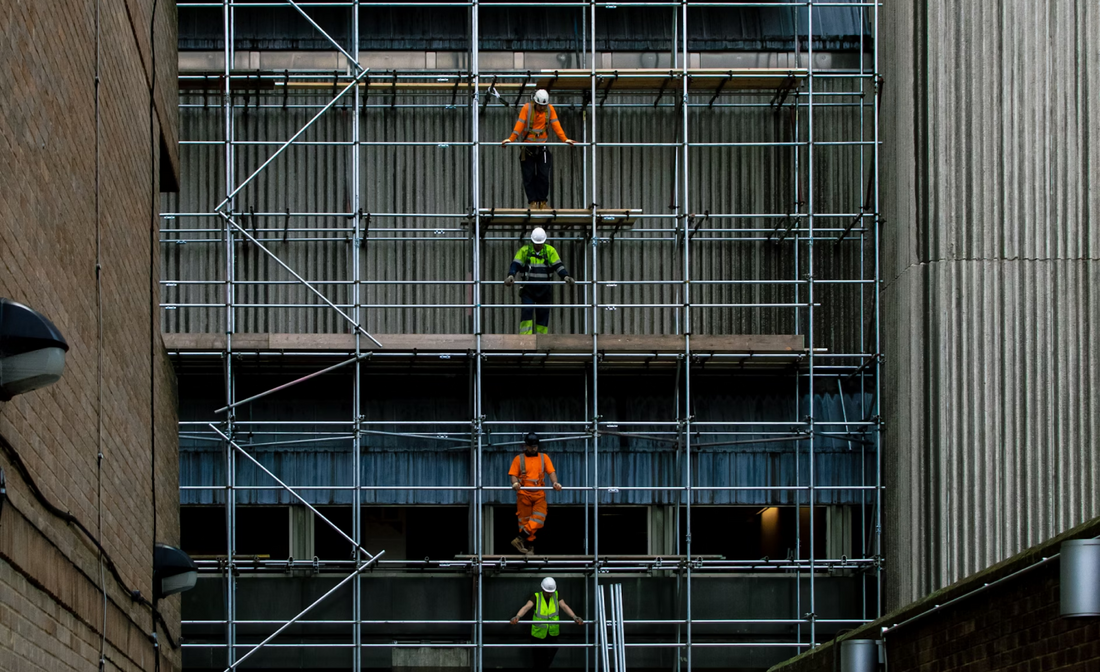
What is Construction Planning: Things you need to know before beginning any project
Planning is an integral aspect of any activity, especially in construction. Without proper planning, contractors, subcontractors, and project managers are more likely to extend their project lifecycles and even double their expenses. Adequate pre-planning allows construction project managers to ensure that everyone is aligned with the project’s objectives.
What is Construction Planning?
Construction planning, as the name suggests, involves planning the various activities related to the different phases of construction. During this process, the construction project manager determines the strategies for executing a project, from the early design phases to the final touches upon completion.
The goal of construction planning is to develop a comprehensive plan that will guide all participants during the different phases of the project. A detailed construction plan helps identify the scope of work for both the contractor and subcontractors. More importantly, it clearly outlines the budget, schedule, and any other pertinent information needed before starting any project.
Components of Construction Planning
A construction plan needs to focus on the following components:
- Scope definition
- Risk assessment
- Resource allocation
- Schedule management
Scope Definition
Scope definition refers to the clearly defined scope of the project, ensuring that everyone involved in the construction is aware of the project’s goals. With a well-defined and communicated scope, clients have a clear picture of what to expect. Furthermore, the scope also guides team members regarding their respective areas of work, which can prevent issues related to scope creep in the future.
Risk Assessment
A lot can happen on a construction site, and construction managers are always on the lookout for potential risks that can cause safety issues,delays, and budget constraints. Fortunately, risks can be mitigated and prevented if there is proper risk assessment before construction begins.
Resource Allocation
Maximising resources is another top priority for construction managers. During construction planning, managers need to consider the different resource requirements for every activity to avoid procurement issues in the long run.
Schedule Management
Estimating activity duration is key during construction planning to avoid any delays. Duration estimates and historical records can help construction managers effectively manage the schedule to prevent issues with precedence relations once construction begins.
Construction Planning: Benefits
A clear construction plan is the backbone of any construction project. There are several benefits to taking the time to properly plan for a build, regardless of the project size:
- Helps the project stay on budget - Staying on budget is a major concern for many construction managers and quantity surveyors. With a construction plan, teams can anticipate possible budget needs, control budget inflation, and prevent unexpected budget overruns during execution.
- Ensures quality in every activity - A well-defined plan, with a clear scope of work for each team member, ensures that everyone is held accountable for their specific tasks. This also helps construction managers check for quality in every aspect of the construction.
- Better time management - Experiencing delays can derail any construction team. Construction planning helps managers allocate adequate time for each activity and deliver results on time.
- Clear communication - Construction teams can range from 2 to 2,000 (or more). Without planning, communication can become chaotic, especially once construction commences. Regardless of team size, a clear construction plan can ensure that information is communicated to all team members promptly.
Construction Planning: First Steps
- Understand the project scope
- Gather necessary documents
- Choose the right planning tool
Before creating the construction plan, you would need to fully understand the scope of the project, including all the deliverables and milestones needed for the project's duration. The project scope essentially outlines what needs to be done, making planning and strategising for execution much easier.
Another prerequisite for construction projects is gathering all necessary documents, including scope documentation, work breakdown schedules, communication plans, visual plans and renderings, and risk management plans. All these documents should be considered when creating a comprehensive construction plan.
After covering points 1 and 2, the next consideration is the tool that will help you plan efficiently. There are several project management tools available online, but many require a monthly fee or are not easily customisable. The best way to ensure that your plans are well-documented and easily understood is by using a template specifically designed for the pre-construction phase, which is easily customisable according to your project needs.
There is an old saying: "A failure to plan is a plan for failure." While construction planning can be tedious, skipping it (or doing it just for the sake of it) is a surefire way to encounter problems onsite from day one. A successful construction project begins with a construction plan that is clear, comprehensive, and effective.